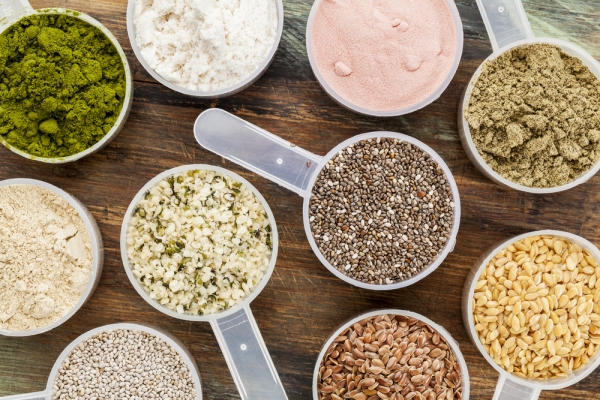Lucuma, camu, maqui – their names alone sound like something exotic and wonderful. In fact, they’re some of the more common “super food” powders that many people are adding to their diet for added nutrition.
However, they may not be as beneficial as claimed. Many of these powders aren’t quite what they appear to be. Dr. Mike Roussell discussed some of the reasons to avoid these powders in Shape Magazine.
“The trap that we fall into with many of these super food powders has to do with their exotic origins and the nutritional buzzwords attached to them,” he told the magazine. “There is something alluring about these foods being used by ancient cultures in faraway jungles that causes us to assume that they must be better for us than the ‘regular’ foods we are currently eating.”
That’s really the gimmick of super food powders. Sure, some of them may include nutrients that do wonders for the body, but those nutrients aren’t exclusive to the powders. They can be found in more common foods as well.
The powders, often added to smoothies, don’t necessarily add nutrition that you couldn’t find in another food that’s cheaper and easier to find. We asked our favorite RD, Mary Hartley, what she thought about super fool powders.
“People love the hocus pocus aspect of foods as medicine,” she said. “But the fact is that many foods, and combinations of foods, boost nutrition and immunity from disease.”
She also points out that super foods readily available in temperate climates include blueberries, cranberries, flax, leafy greens, germs, and sprouts, as well as nuts and their butters, oils, and fermented foods like yogurt. Any combination of these can create a nutritious and delicious drink.
Another issue is much these supplements tend to cost…a lot! Hartley asks some key questions that people should consider before purchasing the powders.
“Of course it’s healthy to add nutritionally-dense foods to the diet, but must those foods come from the Amazon, cost a fortune, and leave a humongous carbon footprint? Does this cash crop help the native people? ‘Super foods’ are indigenous to every place of Earth, and so what’s the point?”
That’s of course assuming that what you’re getting is actually what is advertised. Some lucuma powders, which gained tremendous popularity last year, are listed as 100 percent sugars. However, others say only 16 percent of the carbohydrate content is sugars. Those discrepancies are worrying, especially when considering lucuma powder is often advertised as low-glycemic, low-sugar, and safe for diabetics.
If you want to add nutrition to your diet, we recommend adding everyday super foods like the foods Hartley suggested. You can find them easily, they won’t cost you a fortune, and you know exactly what you’re getting.
Hartley left us with this bottom line regarding super food powders, “Exotic super foods may be nice but are certainly not necessary. And regarding nutrition-related claims made by companies trying to sell me something, I automatically do not believe.”
Also Read:
Half of Americans Believe in Medical Conspiracy Theories. Do You?

